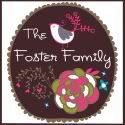Recently I was contacted by Emily Patterson, she asked me to review this article and post it on my blog if I agree. Although I agree with us mothers raising our own children, I believe that pre-school age children benefit from a pre-school type setting. They are expected to know so much going into Kindergarten these days and I also believe it helps them be able to socialize and follow basic rules of school. Thank you Emily for this article.
Early Childhood Education – Certified Early Childhood Education Fills the Gaps
If you have the ability to stay at home with your children, you truly are among very fortunate. With thirty years of economic policies that have decimated the middle class, the majority of American households today require two incomes, meaning that young children must usually be relegated to child care facilities or preschools.
Those who are fortunate enough to stay at home to raise their children naturally wish to take full advantage of this opportunity by attempting to give their children a head start on learning; reading to them, engaging in educational play activities, and socializing them so they're ready for schooling. Unfortunately, very few parents can do it all.
This is where young children can greatly benefit from attendance a certified preschool, operated by trained, certified early childhood educators. The experience of learning in a school setting during the early years can be a valuable supplement to a child's experience at a time when the brain is being shaped and developed.
SPICE
While the parent-child relationship and daily interactions are of course help to develop a child, scientific methodology has an important place as well. This is where trained, certified early childhood educators can "fill the gaps" when it comes to a young child's development. For example, were you as a parent aware that there are five equally important areas of a young child's development? These are summed up by the acronym, "SPICE" – Social, Physical, Intellectual, Creative and Emotional.
Social development relates to the way a child interacts with others and functions in a group setting. While it is clearly important for those coming from a home where they are an only child, it is still important for those with siblings. The importance of socialization in a structured environment becomes apparent during this early age.
Physical development refers to building motor skills, from the gross movements (such as walking and running) to the fine (including holding a writing utensil).
Intellectual development is achieved through structured play, and of course means development of language and math skills as well as the child's innate sense of curiosity and wonder; Intellectual development is central to success in school later on.
Creativity is the foundation of self-expression and problem solving. This development addresses artistic talents in visual arts, music, storytelling and even theatrics.
Emotional development is at the center of a child getting a sense of self, including self confidence and the discipline to deal with one's own emotional responses. Of course leading as well to the functioning in society later in life.
The Professional Advantage
It is likely that most parents are aware of these developmental domains on an instinctive level. However, certified preschool educators are trained in the scientific theory and methodology that can make the difference between a child succeeding – and succeeding brilliantly.
Co-written by Emily Patterson and Kathleen Thomas
Emily and Kathleen are Communications Coordinators for the network of Austin child care facilities belonging to the AdvancED® accredited family of Primrose educational child care schools. Primrose Schools are located in 16 states throughout the U.S. and are dedicated to delivering progressive, early childhood, Balanced Learning® curriculum throughout their preschools.

































No comments:
Post a Comment